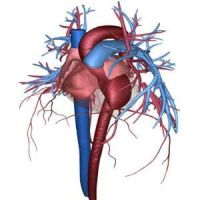According to a study published in JACC: Heart Failure, Michigan hospitals that participated in the American College of Cardiology's "See you in 7" programme demonstrated important reductions in 30-day readmission rates for Medicare heart failure patients as compared to hospitals that were not part of the programme despite only modest increases in seven-day follow up appointments.
The See you in 7 programme is part of the ACC's Hospital-to-Home initiative that is designed to reduce heart disease-related hospital readmissions and to improve the transition from hospital to home. The goal is to ensure that discharged heart failure patients and heart attack patients have a follow-up appointment scheduled within seven days of hospital discharge.
As Christopher O' Connor, MD, FACC and JACC: Heart Failure Editor-in-Chief points out, readmissions of heart failure patients continue to be one of the most important clinical challenges. Transitional care programmes could prove to be a feasible solution to reduce the burden on both patients and health systems.
During this study, researchers evaluated the seven-day follow-up and 30-day readmission rates for Medicare heart failure patients at 10 hospitals in the Southeast Michigan "See You in 7" Collaborative. They compared them to hospitals that were not participating initially and then joined the programme for one year. During that one year, the programme included three phases: implementation, intervention and evaluation periods.
The implementation face required hospitals to select at least one metric from the "See You in 7" toolkit and focus efforts on that specific goal and measure progress. The metrics included:
- identify heart failure patients prior to discharge;
- schedule and document a follow-up visit with a cardiology or primary care doctor within seven days of discharge;
- provide patients with documentation of scheduled follow up;
- identify and address barriers to keeping appointment;
- ensure patients arrive at scheduled follow up appointment; and
- make discharge summary available to follow-up health care providers.
Source: American College of Cardiology
Image Credit: American College of Cardiology



























